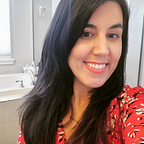Writing Away Self Doubt (on the wings of greats) part 2
There lives a constant self-doubt that goes with being a writer. Franz Kafka knew it well:
“My doubts stand in a cirlce around every word, I see them before I see the word, but what then! I do not see th word at all, I invent it.” -Franz Kafka, Diaries: 1910–1923
So many questions swirling in our mind before we are even done with an artistic piece — it can be so overwhelming. And we can let that doubt destroy our writing before it is even complete. This is probably because writing is a solitary enterprise where we are the judge, jury and defendant. When we write, and if we write well, it is easy to point out the mistakes, to see holes, to want it to be perfect.
Yet perfectionism is the enemy of creativity. The creative mind needs space — and when we make that space too small we suffocate creative flow — a type of creative energy that occurs when we allow ourselves to fall into what we are doing completely. Writing opens a part of our mind that we are not in control of — while we can logically define the space, time and even amount of writing we set out to do — we can not plan what creative inspiration occurs. On the other hand, as Stephen King often warns, we can’t let the muse have all the control — writing must be consistent and we must do it even when we feel uninspired or don’t feel like it. King reminds us that we must force the muse to show up.
Visualize your muse — tell her its time to get to work — bring her to the table when she doesn’t want to come out — and convince her that in order to listen to her — you need to be consistent and give her the time she deserves.
I have struggled for years with the inner workings of writing — believing that these aspects of myself were unique to my own experience and giving up every single time it got difficult, concluding that afterall, I was an imposter — a fake writer pretending to be a writer. When I stopped writing, it was easy to see that I needed this form of expression like I needed food — it was just an integral part of who I was. The ugly beast I finally identified at the root of all of this was simple — self doubt. It showed up as self-sabotage and it pretended to be useful and important.
Self doubt might mirror other areas of your life where you feel like you are not worthy of success, or where you have not yet reached an ending point or pinnacle of sucess. I can relate to this — I am working on my first book and it still feels like a fragile thing that can fall apart at any moment. I abandoned 2 books already — midway though — and I realize now that these books were very much workable — it was me that got in the way. And although I have had successful articles reaching thousands of people all over the world — I still feel like none of that matters. It is like it is the first day of school every single day I publish something online, or write another chapter.
In order to deal with this circular pattern of excitment at beginning and then resignation in failure — I began to read more and more. I found that I could fly on the wings of writers before me —which prompted me to start this series here on Medium. There were so many authors, in fact, who had struggled just like me and openly shared their stories to explore and understand what it means to be a writer — people that include Stephen King, Anne Lamott, Julia Cameron, Neil Gaiman, Maya Angelou and many others.
We crave to be understood — to have meaning in our lives — and if you are a writer it is very likely that writing gives you those things. How many writers had to wait centuries before being discovered, how many had manuscripts rejected time and time again, and how many didn’t fall in with the conventions of their time, only to be rediscovered centuries later? Maybe your writing is good, maybe it is bad, but the very act of writing not only allows you to improve; it makes you what you are — a writer.
In the quest, Anne Lamott says it can be easy to forget that the entire purpose of writing has already been fulfilled the minute that we sit down to write. Lamott reminds us in “Bird by Bird,” that a first draft is a place for freedom — a place to allow ourselves space for the creative mind. She describes a time she edited a book 3 times at the request of an editor — it was painstaking, but every single time I think she learned something and grew as a writer — it became her best novel.
The second we take the time to put words on paper and let them go into the world something magical happens. We are letting words be our guide, and allowing others into the lens of our own creation. We are powerful in our own right, and we are paying honor to those writers who came before us asking the same questions, having the same doubts, and seeking artistic beauty. We are writers. We write on the wings of writers — those we chose to be inspired by, those whose advice changes our craft, and those whose work touches our soul. And here is the secret I learned: we never write alone. We write on the wings of greats.
